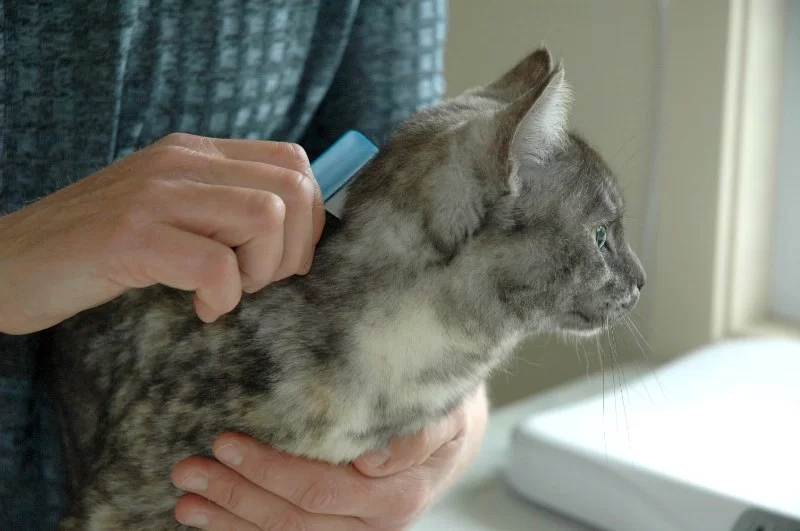- 1 - Understanding the Flea Problem in Cats
- 2 - Common Signs That Your Cat Has Fleas
- 3 - Effective Treatment Options for Fleas
- 4 - Prevention Strategies Every Owner Should Know
- 5 - Real Case Story: How One Cat Overcame a Flea Infestation
- 6 - Professional Guidance and Long-Term Care
1. Understanding the Flea Problem in Cats
Fleas are one of the most common external parasites affecting cats, and while they may seem like a minor nuisance, they can lead to serious health issues. Fleas feed on your cat’s blood, causing itching, skin infections, and in severe cases, anemia. They can also transmit tapeworms and other diseases. Understanding how fleas thrive—warm weather, carpets, and even other pets—is the first step in protecting your feline friend.
2. Common Signs That Your Cat Has Fleas
Many cat owners are surprised by how subtle flea infestations can be. The most obvious signs include constant scratching, small red bumps on the skin, hair loss in patches, or black “flea dirt” (tiny specks of dried blood) visible on your cat’s fur. Cats are skilled groomers, so infestations may go unnoticed until they become severe. For example, a Maine Coon brought to Hidden Brook Veterinary showed only mild scratching, but after examination, a full flea infestation was confirmed.
3. Effective Treatment Options for Fleas
There are several proven methods to treat fleas in cats. Topical treatments, oral medications, and flea collars are the most common veterinary-recommended solutions. Baths with specialized flea shampoos may provide short-term relief but are rarely enough to solve the problem alone. Treatment should also include the cat’s environment—vacuuming carpets, washing bedding, and treating other pets in the household. Skipping these steps often leads to recurring infestations.
4. Prevention Strategies Every Owner Should Know
Preventing fleas is far easier than dealing with an infestation. Experts recommend year-round flea prevention, even during colder months when fleas can survive indoors. Regular grooming, monthly flea preventatives, and keeping your home clean are all essential strategies. Some cat owners mistakenly stop prevention after summer, only to face a new outbreak in the fall. By consulting with Hidden Brook Veterinary, owners can choose the most suitable preventive care tailored to their cat’s lifestyle.
5. Real Case Story: How One Cat Overcame a Flea Infestation
A memorable case involved a rescue kitten named Oliver, who was brought into a clinic severely underweight and covered in fleas. His condition required immediate veterinary care, including flea treatment and nutritional support. Within weeks, Oliver regained his strength and found a forever home. His story highlights how fleas are not just a minor inconvenience but a serious health threat that requires timely action.
6. Professional Guidance and Long-Term Care
While over-the-counter solutions are widely available, not every product is safe or effective for cats. Some flea treatments for dogs can even be toxic to felines. That’s why professional guidance is critical. Veterinary clinics like Hidden Brook Veterinary provide personalized treatment plans, monitor your cat’s response, and recommend the safest long-term prevention. Proactive care ensures your pet remains flea-free and healthy year-round.












